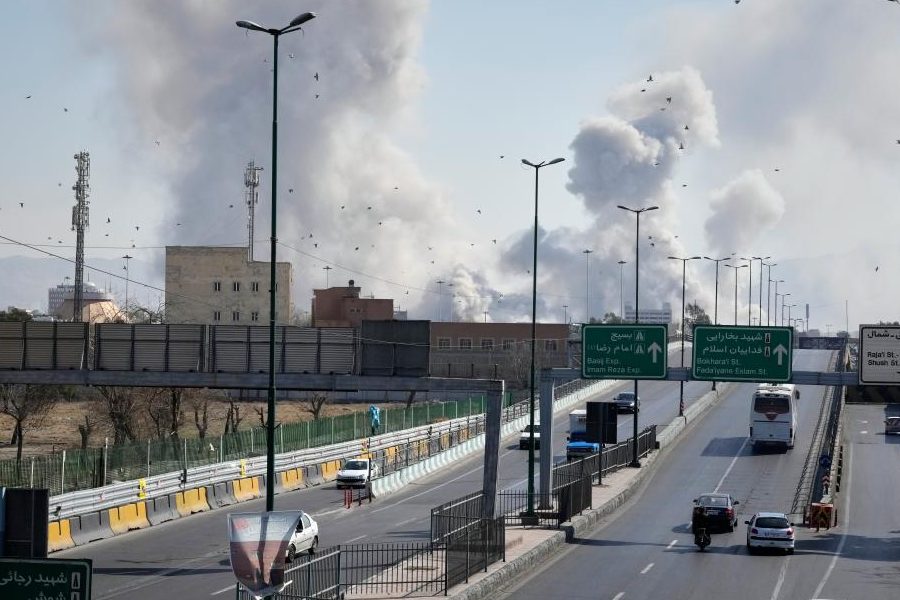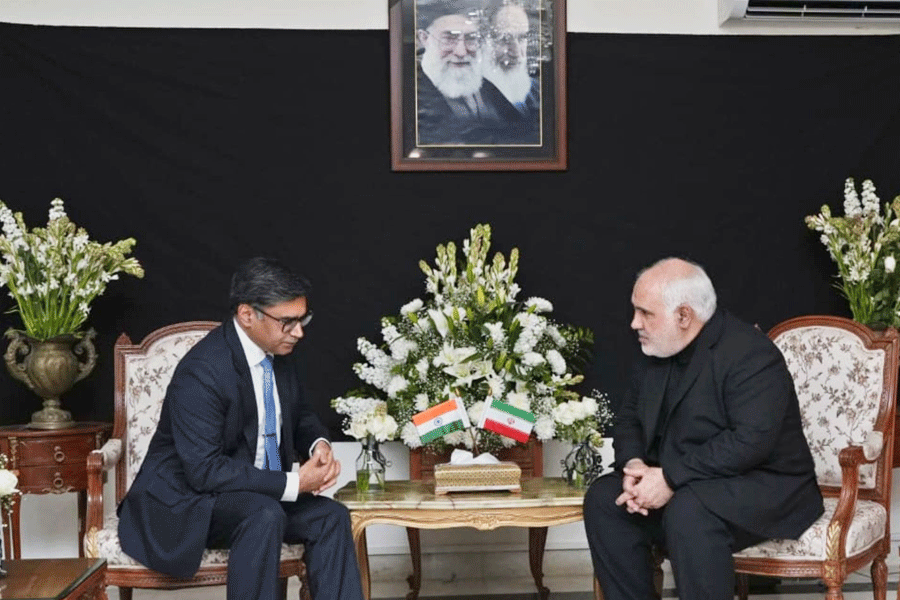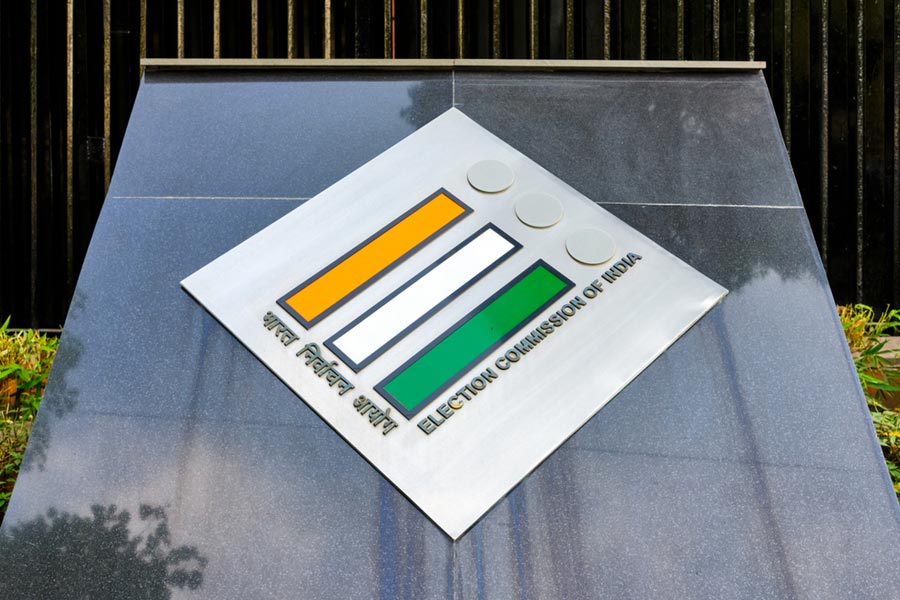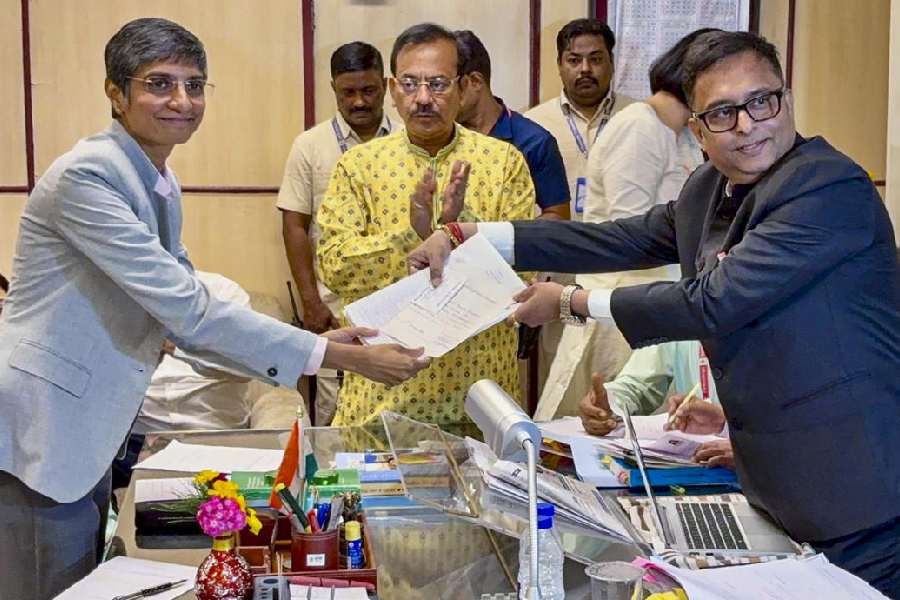 |
Dhaka: The last World Cup, in 2007, was a disaster for Team India. “It’s gone, why talk about it? It’s over,” is what Sachin Tendulkar told The Telegraph the other day. In the lead-up to that edition, however the icon had spoken exclusively on his World Cup memories. As an appropriate time didn’t come about then, the interview was ‘preserved’ for 2011.
The following are excerpts
Q To go back to 1983, that World Cup changed your life, for you took to cricket after that. What are your memories of that edition?
A I had already started playing cricket... In 1983, I didn’t understand much about it, though, didn’t know everything that was happening. However, I was aware of the India-West Indies final, without too many details. I didn’t really know what a proper outswinger was or the perfect cover drive.
The final was telecast... Do you remember watching it?
Yeah, I watched the final. With me were my friends and brothers. We went to a friend’s place. The other kids from that building had also gathered there and we watched it all together.
You’d been very interested in tennis. So, after India’s win, was it a conscious decision to concentrate on cricket?
No, not really. It was just a wonderful moment for us... My tennis was also getting along. Then, during a vacation, I decided to go ahead with cricket only. I didn’t look back.
By the time of the 1987 World Cup, you were being talked about as somebody with a lot of potential. What are your memories of that edition?
Again, I don’t remember much about that World Cup because I was playing a tournament. I wasn’t actually sitting at home and watching it, because I was practising and playing virtually every day. So, I didn’t get to see much of it, but I was a ballboy in the India-Zimbabwe game at the Wankhede. The officials made sure that I sat near the dressing room and, so, got to see all the seniors from very close... That’s when I saw everyone --- Sunil Gavaskar, Kapil Dev, Dilip Vengsarkar, Mohammed Azharuddin... Everyone.
Do you recall talking to anybody or taking somebody’s autograph?
Gavaskar had, very kindly, taken me to the Indian dressing room... So I went there, looked around and came out.
Whenever the opportunity arose, who did you speak to?
Gavaskar and Vengsarkar.
At that stage, serving as a ballboy in a World Cup must have been a huge moment...
It was surely one of the big moments. The other was when I was invited by Vengsarkar to bat at the India nets. That was a year later, in 1988, when John Wright’s New Zealand had come. Vengsarkar was then the captain and I faced everyone --- Kapil, Chetan Sharma, Narendra Hirwani... To get that opportunity, as a teenager, was very exciting.
 |
The first World Cup you played in was 1992. Before that, you had a couple of outstanding hundreds in the Test series (148 not out in Sydney and 114 in Perth) in Australia. What were your thoughts on the eve of that edition?
I was just too excited to be there. I’d been a ballboy in the previous World Cup and here I was, actually a part of the team. It was something incredible and I felt very happy being there. We ended up being on the road for four months or so, as the World Cup followed the tour of Australia, but it was one huge experience.
Did you feel homesick?
No, I was fine.
The Test hundreds and the media attention... Were you under big pressure because, suddenly, the expectations had soared?
Didn’t put me under pressure at all. It just increased my confidence. I’d say all that helped me.
Your most satisfying innings in the 1992 World Cup?
Probably the one against Pakistan, in Sydney (54 not out).
Why? Was it because of the Pakistan factor?
No... It was an important innings because I batted till the end and that helped the team reach the eventual goal (of winning).
In 1996, you’d already become a superstar, but the World Cup was at home. Everybody looked up to you more than anybody else. Did you feel the heat and how did you approach that edition?
Was absolutely excited to play in India. There was no pressure, I looked at it differently.
How?
I felt the whole of India would be supporting us... It’s wonderful to have everyone cheering for you.
But 1996 ended in a loss (to Sri Lanka, in the semi-final) after quite a bad performance in Calcutta. Do you recall your own emotions that night, after leaving the Eden?
I remember we went back to the hotel and sat in one of the rooms... Most of us were very upset... We discussed what went wrong and what should have happened... It wasn’t a good moment.
Is there an innings you remember with satisfaction?
The 90 against Australia, in Mumbai, was the highlight... Also, the 137 I scored against Sri Lanka, in Delhi.
To go to the next World Cup, 1999... Before that, you didn’t play the tri-series against Pakistan and Sri Lanka, at home, because of a back problem. Were you, therefore, tense and worried before that edition?
Yes, I was a little worried as the problem was quite severe and, to a certain extent, was affecting my game... Moreover, because of the cold in England, the back stiffens up quickly. I’d been worried, but it held up pretty well.
Actually, you had a good tournament…
I wasn’t fully happy with what I’d contributed, but it wasn’t a bad tournament for me either.
Is there one innings you recall instantly?
The 140 not out against Kenya... Because I’d just come back from India (after his father’s demise) and it was a difficult period for me.
Emotionally, how difficult was it for you?
(Pauses) It was extremely tough. It’s very difficult when anyone loses a family member... It’s tough keeping the sad thoughts away... It can get difficult physically as well... Of course, there are times when you don’t feel the physical strain, but the mental stress is high.
You dedicated that hundred to your late father. Where do you place that innings?
Among the most important hundreds, for reasons you’re aware of.
After that was the 2003 World Cup... Great tournament for the team, a great tournament for you personally... We hadn’t done well in New Zealand, just before that edition, so what were your expectations from the team?
We always knew we would come back strong because our form wouldn’t carry on like that. New Zealand beat us, but even they didn’t score big runs. Both teams had struggled because the wickets were out of the ordinary. I remember Stephen Fleming saying that the batsmen had started looking for weaknesses where they didn’t exist, giving the bowlers a false sense of confidence.
We lost to Australia, in Centurion, and there were protests back in India. Then, before the next match, against Zimbabwe (in Harare), you actually read out a statement on behalf of the team...
I’d been disappointed by the behaviour of the people... It should never be that one has to come out and say that he’s giving his best for the country...
Did you volunteer to make that statement or were you requested to do so by the team management?
It was a request from the team management.
The fans were asked to be patient...
Absolutely, because I was very confident that we were going to do well. Doing well or not doing well should not be linked with the effort you put in. That hundred per cent is always there, be it the World Cup or any other tournament or a series. People just get carried away, I think... Such things don’t help a team at all. What people should do is to stand by the players. It’s not just the 15 of us, all of India should be together... Absolutely everybody — and this includes the television channels and the print media — has to support the players and not run them down. That doesn’t help in any way and will only be an additional burden. You have to mature a bit.
You had a terrific tournament... Plus we made the final, your first final… What made the difference for you and what made the team click?
Even though certain unwanted things were happening back home, we were all very confident and stuck together. We decided we wouldn’t think about those things and keep trying our best, without worrying about the results. That worked. On the way to the final, the same people who’d criticised us, began clapping... I don’t think any player was happy with that. After all, what kind of support is that?
Tell me, the pain of losing the final... How long did it take you to recover? Every cricketer wants to be remembered as having belonged to a World Cup-winning XI...
It was a huge disappointment... Even today, when we think about the final, it’s not a pleasant feeling. We'd been playing brilliantly... You think of any moment and feel that things could have been different.
The six you hit off Shoaib Akhtar, in Centurion, is one of the most memorable shots of any World Cup. Your take?
Well, people have told me so, but I don’t know... I leave it to the people to decide.
Which is the one innings of all the very good ones you had (in 2003) which gives you the most satisfaction?
The one (98) against Pakistan.
That was a match we needed to win... What were your thoughts when you took guard?
I had planned that I’d just see off the first spells, for I knew that not losing wickets early would be the key... But, when I went in there, things started looking totally different... I felt good, I was picking the line and length early enough to play the shots... I went with the flow.
Talking generally, how do you react to situations where every time you sneeze, everybody in India catches a cold?
(Laughs) Sometimes, things become bigger than they actually are.
Your three best World Cup matches...
In 1992, against Pakistan (Sydney); in 1996, against Pakistan (Bangalore) and in 2003, again against Pakistan (Centurion). We won all three times.
Is your preparation for a World Cup any different?
No, it’s more or less the same.
This mental toughness... Does it play a bigger role in, say, the World Cup?
In a World Cup, one keeps facing different opponents, whereas it’s different in a tri-series or a bilateral series... Your planning, then, stays the same. But in a World Cup, you definitely have to plan differently.
Your favourite World Cup performances...
First, obviously, the 140 not out against Kenya, due to the circumstances. The 98 against Pakistan, in 2003... My 81 against Zimbabwe, in 2003, because that innings was extremely important and it helped change everything. After that, we went on to win eight matches in a row. So, for the team, it was a defining innings.
Three stand-out efforts from other players?
The hundred (116) that Brian Lara got in 2003, in Cape Town, against South Africa That was good. Ricky Ponting’s hundred (140 not out) against us in the 2003 final. And, probably, Inzamam-ul Haq's run-out by Jonty Rhodes in the 1992 World Cup.
You haven’t picked a bowler. Haven’t been too impressed by them, is it?
No, nothing like that... Normally, a batsman would look at a batsman’s performance and a bowler would look at a bowler’s performance... Strictly off hand, I don’t remember any bowling performance.
Being the senior-most pro, what do you tell first-time World Cuppers?
It’s a big moment and everyone gets excited, but treat the occasion normally. At the end of the day, we’ll still be playing cricket.
How do you handle the pressure of a billion-plus people, who want you to succeed all the time?
Well, it’s always difficult to keep everyone happy. So, I do things which I feel are correct and where I feel that I’m on the right path... I take that path... I just put my hand on my heart and ask whether I’m making the right decision... I go ahead if I’m convinced it’s right for the team and for the country.
Finally... Apart from your mother’s blessings, is there anything else you ‘take’ with you on tours?
The entire family’s good wishes... The blessings of my coach, (Ramakant) Achrekar Sir, too.











